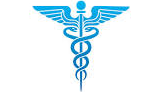Digital Health
 portes grátis
portes grátis
Digital Health
Telemedicine and Beyond
Patel, Dipu
Elsevier Science Publishing Co Inc
10/2024
553
Mole
9780443239014
15 a 20 dias
Descrição não disponível.
Introduction
Foreword
John Nosta
1. Digital Health: Ancient Wisdom, Modern Medicine
Dipu Patel
2. Diagnosing the Future: The Roles of Artificial Intelligence in the Forthcoming Medical Epoch
Mark DiMauro and Marty Rosenheck
3. AI in Medical Education: Challenges and Opportunities
Marty Rosenheck
Digital Medicine in Practice
4. Telemedicine: History, Foundation, and Clinical Implementation
Mercedes Dodge and Kathryn Werner
5. Beyond the Wrist: Wearables in Healthcare
Hina Mazharuddin
6. mHealth
Stefan Buttigieg
7. Looking Ahead: The Future of Electronic Health Records
Emily Lewis
8. Bridging the Gap: Empowering Patients with Health Apps
Tom Micklewright
9. Remote Patient Monitoring
Lisa Shock
10. From Data to Diagnosis: The Power of Precision Medicine in Digital Health
Josh Borgstadt and Dipu Patel
11. Hospital to Home: Bridging the Gap with Personalized Medicine
Harvey Castro and Dipu Patel
12. Robot-Assisted Surgery: Past, Present, and Future
Jessica Grasso
13. Understanding Digital Therapeutics
Agnes Compagnone and Rachel Cole
14. Digital Therapeutics: A New Era of Technology for Treatment
Whitney Stewart
15. Digital Health and the Future of Primary Care
Dipu Patel and Amit Dey
16. Integrating Digital Medicine in Rural Communities
Susan McDiarmid and Sonia Otte
Billing and Coding
17. Coding for Telehealth/CMS guidelines
Aditi Joshi
18. ICD10 and SNOMED CT: The Role of Healthcare Classification Systems in Digital Health
Sara Gallo
Legal and Ethical Issues
19. Digital Health Law
Jeremy Sherer and Amy Joseph
20. Use and Reuse of Data: Access, Ownership, Value, and Trust
Danny Van Roijen
21. Ethical Issues for Artificial Intelligence in Medicine
Derek Leben
22. Health Policy
Kathryn Reed, Nathan Miracle, Amy Brown, and Christine Rodgers
23. Regulatory Considerations
Mona Kelley and Caitlin Kelley
Research
24. Navigating Data Quality in the Digital Health Era: Validation, Verification, and IRB
Christina Davis, Jeff Cooper, and Dave Beck
25. Healthcare, Trials, and Digital Impact
Samarth Kashyap and Shambhavi Singh
Where To Now?
26. Future Trends
Arta Bakshandeh
27. Battling Misinformation
Michael Smith and Chelsea Backer
28. Educating the Next Generation in Digital Medicine
Vanessa Bester and Eric Van Hecke
29. Classroom Best Practices
Carlos Gutierrez, Sarah Bolander, Stephanie Jalaba, and Ryan Kingsley
30. Artificial Intelligence and Machine Learning in the Classroom
Carlos Gutierrez, Sarah Bolander, Stephanie Jalaba, and Ryan Kingsley
31. Student Perspective: Doctorate of Physician Assistant Studies: Digital Health Initiatives
Allison Bakowicz and Megan Gallagher
32. Student Perspective: From Education to Practice
Dua Abbas
33. Student Perspective: Interpreting the Future: Navigating the Tele-Revolution in Healthcare Language Access
Muhiyadin Aden
34. Organizational Perspectives
Amy Haller and Ben Reynolds
35. Patient perspectives
Debra Ruh
Foreword
John Nosta
1. Digital Health: Ancient Wisdom, Modern Medicine
Dipu Patel
2. Diagnosing the Future: The Roles of Artificial Intelligence in the Forthcoming Medical Epoch
Mark DiMauro and Marty Rosenheck
3. AI in Medical Education: Challenges and Opportunities
Marty Rosenheck
Digital Medicine in Practice
4. Telemedicine: History, Foundation, and Clinical Implementation
Mercedes Dodge and Kathryn Werner
5. Beyond the Wrist: Wearables in Healthcare
Hina Mazharuddin
6. mHealth
Stefan Buttigieg
7. Looking Ahead: The Future of Electronic Health Records
Emily Lewis
8. Bridging the Gap: Empowering Patients with Health Apps
Tom Micklewright
9. Remote Patient Monitoring
Lisa Shock
10. From Data to Diagnosis: The Power of Precision Medicine in Digital Health
Josh Borgstadt and Dipu Patel
11. Hospital to Home: Bridging the Gap with Personalized Medicine
Harvey Castro and Dipu Patel
12. Robot-Assisted Surgery: Past, Present, and Future
Jessica Grasso
13. Understanding Digital Therapeutics
Agnes Compagnone and Rachel Cole
14. Digital Therapeutics: A New Era of Technology for Treatment
Whitney Stewart
15. Digital Health and the Future of Primary Care
Dipu Patel and Amit Dey
16. Integrating Digital Medicine in Rural Communities
Susan McDiarmid and Sonia Otte
Billing and Coding
17. Coding for Telehealth/CMS guidelines
Aditi Joshi
18. ICD10 and SNOMED CT: The Role of Healthcare Classification Systems in Digital Health
Sara Gallo
Legal and Ethical Issues
19. Digital Health Law
Jeremy Sherer and Amy Joseph
20. Use and Reuse of Data: Access, Ownership, Value, and Trust
Danny Van Roijen
21. Ethical Issues for Artificial Intelligence in Medicine
Derek Leben
22. Health Policy
Kathryn Reed, Nathan Miracle, Amy Brown, and Christine Rodgers
23. Regulatory Considerations
Mona Kelley and Caitlin Kelley
Research
24. Navigating Data Quality in the Digital Health Era: Validation, Verification, and IRB
Christina Davis, Jeff Cooper, and Dave Beck
25. Healthcare, Trials, and Digital Impact
Samarth Kashyap and Shambhavi Singh
Where To Now?
26. Future Trends
Arta Bakshandeh
27. Battling Misinformation
Michael Smith and Chelsea Backer
28. Educating the Next Generation in Digital Medicine
Vanessa Bester and Eric Van Hecke
29. Classroom Best Practices
Carlos Gutierrez, Sarah Bolander, Stephanie Jalaba, and Ryan Kingsley
30. Artificial Intelligence and Machine Learning in the Classroom
Carlos Gutierrez, Sarah Bolander, Stephanie Jalaba, and Ryan Kingsley
31. Student Perspective: Doctorate of Physician Assistant Studies: Digital Health Initiatives
Allison Bakowicz and Megan Gallagher
32. Student Perspective: From Education to Practice
Dua Abbas
33. Student Perspective: Interpreting the Future: Navigating the Tele-Revolution in Healthcare Language Access
Muhiyadin Aden
34. Organizational Perspectives
Amy Haller and Ben Reynolds
35. Patient perspectives
Debra Ruh
Este título pertence ao(s) assunto(s) indicados(s). Para ver outros títulos clique no assunto desejado.
Accessibility; ADA; Adaptive learning; AGI; AI assistants; AI education; AI ethics; AI simulation; AI; Algorithmic fairness; Artificial intelligence (AI)Big data; Artificial intelligence (AI)Digital health education; Artificial intelligence; Augmented workforces; Barriers and challenges of digital therapeutics; Behavioral health; Benefits of digital therapeutics; Care; Caregiver help; CBME; Center for Medicare & Challenges in medical education; Change leadership; Chronic disease management (CDM)Clinical decision-making; Chronic disease; Clinical informatics; Clinical rotations; Clinical trial; CMS; Coding; Communication; Community health worker; Competency based medical education; Complex adaptive systems; Computer in society; Computer security; Consent; Core principles; COVID-19Debunking; COVID-19In-person interpreter modality; CRPD; Curriculum; da Vinci; Data access; Data analytics; Data governance; Data management; Data mining; Data ownership; Data protection; Data sharing; Data; Definition of telemedicine; Delivery of health care; Delivery of healthcare; Digital and social determinants of health; Digital diagnostics; Digital health education; Digital health ethics; Digital health inequalities; Digital health law; Digital health policy; Digital health technologies; Digital health; Digital healthcare; Digital literacy; Digital medicine intervention; Digital medicine; Digital tattoos; Digital therapeutics; Digital tools; Digital touchpoints; Disability; Disabilityinclusion; Discharge instructions; Disinformation; DTx; Electronic health records; EndoWrist; Evidence based; Explainable AI; FDA; Fitness trackers; FQHC; Future of robot-assisted surgery; GDPR; Generative AI; Genetics; Global health; Government; Haptic feedback; Health applications; Health care; Health data; Health disparity; Health economics; Health education; Health equity; Health informatics; Health information exchange; Health information technology; Health literacy; Health monitoring; Health policy; Health profession; Health professions; Health promotion; Health system; Healthcare curriculum; Healthcare economics; Healthcare education; Healthcare providers; Healthcare; High-fidelity simulation; Hospital system; Human-computer interaction; ICD-10Interoperability; Illusory truth effect; Implementation; Implied truth effect; Inclusion; Infodemic; Information management; Information system application; Information systems; Instructor resources; Interventions; IRB; Jurisdiction; Language barrier; Laws and regulations; Learning; Licensing compact; Limitations of robot-assisted surgery; Limited English Proficiency; Machine learning (ML)Personalized learning; Machine learning; Medicaid services; Medical AI; Medical billing and coding; Medical devices; Medical education; Medical informatics; Medical software; Medicare; Metaverse; mHealth; Misinformation; Mobile health; Natural language processing; Organization; Patient access; Patient care; Patient-centered care; Patient-centered; PDTs; Personalized medicine; Phases of clinical trials; Political trust; Prebunking; Precision medicine; Prescription digital therapeutics; Primary care; Privacy considerations; Professional development; Public health; Regulations; Regulatory landscape; Remote patient monitoring (RPM)Telehealth; Remote patient monitoring; Research; Robot-assisted surgery benefits; Robot-assisted surgery; Rural and underserved areas; Rural health; Rural; SaMD; Smart cars; Smart clothing; Smart glasses; Smart home; Smart pills; Smart watches; Smartphone; SNOMED-CT; Social determinants of health; Software as a medical device; Substance use disoders; Surgical precision; Technology-based interpreters; Telehealth curriculum; Telehealth visits; Telehealth; Teleinterpretation; Telemedicine regulation; Telemedicine; Telesurgery; Televisit; Transformative care; Translation; Understandability; Validation; Verification; Video platforms; Video remote interpreting (VRI)Virtual care; Virtual patients
Introduction
Foreword
John Nosta
1. Digital Health: Ancient Wisdom, Modern Medicine
Dipu Patel
2. Diagnosing the Future: The Roles of Artificial Intelligence in the Forthcoming Medical Epoch
Mark DiMauro and Marty Rosenheck
3. AI in Medical Education: Challenges and Opportunities
Marty Rosenheck
Digital Medicine in Practice
4. Telemedicine: History, Foundation, and Clinical Implementation
Mercedes Dodge and Kathryn Werner
5. Beyond the Wrist: Wearables in Healthcare
Hina Mazharuddin
6. mHealth
Stefan Buttigieg
7. Looking Ahead: The Future of Electronic Health Records
Emily Lewis
8. Bridging the Gap: Empowering Patients with Health Apps
Tom Micklewright
9. Remote Patient Monitoring
Lisa Shock
10. From Data to Diagnosis: The Power of Precision Medicine in Digital Health
Josh Borgstadt and Dipu Patel
11. Hospital to Home: Bridging the Gap with Personalized Medicine
Harvey Castro and Dipu Patel
12. Robot-Assisted Surgery: Past, Present, and Future
Jessica Grasso
13. Understanding Digital Therapeutics
Agnes Compagnone and Rachel Cole
14. Digital Therapeutics: A New Era of Technology for Treatment
Whitney Stewart
15. Digital Health and the Future of Primary Care
Dipu Patel and Amit Dey
16. Integrating Digital Medicine in Rural Communities
Susan McDiarmid and Sonia Otte
Billing and Coding
17. Coding for Telehealth/CMS guidelines
Aditi Joshi
18. ICD10 and SNOMED CT: The Role of Healthcare Classification Systems in Digital Health
Sara Gallo
Legal and Ethical Issues
19. Digital Health Law
Jeremy Sherer and Amy Joseph
20. Use and Reuse of Data: Access, Ownership, Value, and Trust
Danny Van Roijen
21. Ethical Issues for Artificial Intelligence in Medicine
Derek Leben
22. Health Policy
Kathryn Reed, Nathan Miracle, Amy Brown, and Christine Rodgers
23. Regulatory Considerations
Mona Kelley and Caitlin Kelley
Research
24. Navigating Data Quality in the Digital Health Era: Validation, Verification, and IRB
Christina Davis, Jeff Cooper, and Dave Beck
25. Healthcare, Trials, and Digital Impact
Samarth Kashyap and Shambhavi Singh
Where To Now?
26. Future Trends
Arta Bakshandeh
27. Battling Misinformation
Michael Smith and Chelsea Backer
28. Educating the Next Generation in Digital Medicine
Vanessa Bester and Eric Van Hecke
29. Classroom Best Practices
Carlos Gutierrez, Sarah Bolander, Stephanie Jalaba, and Ryan Kingsley
30. Artificial Intelligence and Machine Learning in the Classroom
Carlos Gutierrez, Sarah Bolander, Stephanie Jalaba, and Ryan Kingsley
31. Student Perspective: Doctorate of Physician Assistant Studies: Digital Health Initiatives
Allison Bakowicz and Megan Gallagher
32. Student Perspective: From Education to Practice
Dua Abbas
33. Student Perspective: Interpreting the Future: Navigating the Tele-Revolution in Healthcare Language Access
Muhiyadin Aden
34. Organizational Perspectives
Amy Haller and Ben Reynolds
35. Patient perspectives
Debra Ruh
Foreword
John Nosta
1. Digital Health: Ancient Wisdom, Modern Medicine
Dipu Patel
2. Diagnosing the Future: The Roles of Artificial Intelligence in the Forthcoming Medical Epoch
Mark DiMauro and Marty Rosenheck
3. AI in Medical Education: Challenges and Opportunities
Marty Rosenheck
Digital Medicine in Practice
4. Telemedicine: History, Foundation, and Clinical Implementation
Mercedes Dodge and Kathryn Werner
5. Beyond the Wrist: Wearables in Healthcare
Hina Mazharuddin
6. mHealth
Stefan Buttigieg
7. Looking Ahead: The Future of Electronic Health Records
Emily Lewis
8. Bridging the Gap: Empowering Patients with Health Apps
Tom Micklewright
9. Remote Patient Monitoring
Lisa Shock
10. From Data to Diagnosis: The Power of Precision Medicine in Digital Health
Josh Borgstadt and Dipu Patel
11. Hospital to Home: Bridging the Gap with Personalized Medicine
Harvey Castro and Dipu Patel
12. Robot-Assisted Surgery: Past, Present, and Future
Jessica Grasso
13. Understanding Digital Therapeutics
Agnes Compagnone and Rachel Cole
14. Digital Therapeutics: A New Era of Technology for Treatment
Whitney Stewart
15. Digital Health and the Future of Primary Care
Dipu Patel and Amit Dey
16. Integrating Digital Medicine in Rural Communities
Susan McDiarmid and Sonia Otte
Billing and Coding
17. Coding for Telehealth/CMS guidelines
Aditi Joshi
18. ICD10 and SNOMED CT: The Role of Healthcare Classification Systems in Digital Health
Sara Gallo
Legal and Ethical Issues
19. Digital Health Law
Jeremy Sherer and Amy Joseph
20. Use and Reuse of Data: Access, Ownership, Value, and Trust
Danny Van Roijen
21. Ethical Issues for Artificial Intelligence in Medicine
Derek Leben
22. Health Policy
Kathryn Reed, Nathan Miracle, Amy Brown, and Christine Rodgers
23. Regulatory Considerations
Mona Kelley and Caitlin Kelley
Research
24. Navigating Data Quality in the Digital Health Era: Validation, Verification, and IRB
Christina Davis, Jeff Cooper, and Dave Beck
25. Healthcare, Trials, and Digital Impact
Samarth Kashyap and Shambhavi Singh
Where To Now?
26. Future Trends
Arta Bakshandeh
27. Battling Misinformation
Michael Smith and Chelsea Backer
28. Educating the Next Generation in Digital Medicine
Vanessa Bester and Eric Van Hecke
29. Classroom Best Practices
Carlos Gutierrez, Sarah Bolander, Stephanie Jalaba, and Ryan Kingsley
30. Artificial Intelligence and Machine Learning in the Classroom
Carlos Gutierrez, Sarah Bolander, Stephanie Jalaba, and Ryan Kingsley
31. Student Perspective: Doctorate of Physician Assistant Studies: Digital Health Initiatives
Allison Bakowicz and Megan Gallagher
32. Student Perspective: From Education to Practice
Dua Abbas
33. Student Perspective: Interpreting the Future: Navigating the Tele-Revolution in Healthcare Language Access
Muhiyadin Aden
34. Organizational Perspectives
Amy Haller and Ben Reynolds
35. Patient perspectives
Debra Ruh
Este título pertence ao(s) assunto(s) indicados(s). Para ver outros títulos clique no assunto desejado.
Accessibility; ADA; Adaptive learning; AGI; AI assistants; AI education; AI ethics; AI simulation; AI; Algorithmic fairness; Artificial intelligence (AI)Big data; Artificial intelligence (AI)Digital health education; Artificial intelligence; Augmented workforces; Barriers and challenges of digital therapeutics; Behavioral health; Benefits of digital therapeutics; Care; Caregiver help; CBME; Center for Medicare & Challenges in medical education; Change leadership; Chronic disease management (CDM)Clinical decision-making; Chronic disease; Clinical informatics; Clinical rotations; Clinical trial; CMS; Coding; Communication; Community health worker; Competency based medical education; Complex adaptive systems; Computer in society; Computer security; Consent; Core principles; COVID-19Debunking; COVID-19In-person interpreter modality; CRPD; Curriculum; da Vinci; Data access; Data analytics; Data governance; Data management; Data mining; Data ownership; Data protection; Data sharing; Data; Definition of telemedicine; Delivery of health care; Delivery of healthcare; Digital and social determinants of health; Digital diagnostics; Digital health education; Digital health ethics; Digital health inequalities; Digital health law; Digital health policy; Digital health technologies; Digital health; Digital healthcare; Digital literacy; Digital medicine intervention; Digital medicine; Digital tattoos; Digital therapeutics; Digital tools; Digital touchpoints; Disability; Disabilityinclusion; Discharge instructions; Disinformation; DTx; Electronic health records; EndoWrist; Evidence based; Explainable AI; FDA; Fitness trackers; FQHC; Future of robot-assisted surgery; GDPR; Generative AI; Genetics; Global health; Government; Haptic feedback; Health applications; Health care; Health data; Health disparity; Health economics; Health education; Health equity; Health informatics; Health information exchange; Health information technology; Health literacy; Health monitoring; Health policy; Health profession; Health professions; Health promotion; Health system; Healthcare curriculum; Healthcare economics; Healthcare education; Healthcare providers; Healthcare; High-fidelity simulation; Hospital system; Human-computer interaction; ICD-10Interoperability; Illusory truth effect; Implementation; Implied truth effect; Inclusion; Infodemic; Information management; Information system application; Information systems; Instructor resources; Interventions; IRB; Jurisdiction; Language barrier; Laws and regulations; Learning; Licensing compact; Limitations of robot-assisted surgery; Limited English Proficiency; Machine learning (ML)Personalized learning; Machine learning; Medicaid services; Medical AI; Medical billing and coding; Medical devices; Medical education; Medical informatics; Medical software; Medicare; Metaverse; mHealth; Misinformation; Mobile health; Natural language processing; Organization; Patient access; Patient care; Patient-centered care; Patient-centered; PDTs; Personalized medicine; Phases of clinical trials; Political trust; Prebunking; Precision medicine; Prescription digital therapeutics; Primary care; Privacy considerations; Professional development; Public health; Regulations; Regulatory landscape; Remote patient monitoring (RPM)Telehealth; Remote patient monitoring; Research; Robot-assisted surgery benefits; Robot-assisted surgery; Rural and underserved areas; Rural health; Rural; SaMD; Smart cars; Smart clothing; Smart glasses; Smart home; Smart pills; Smart watches; Smartphone; SNOMED-CT; Social determinants of health; Software as a medical device; Substance use disoders; Surgical precision; Technology-based interpreters; Telehealth curriculum; Telehealth visits; Telehealth; Teleinterpretation; Telemedicine regulation; Telemedicine; Telesurgery; Televisit; Transformative care; Translation; Understandability; Validation; Verification; Video platforms; Video remote interpreting (VRI)Virtual care; Virtual patients






